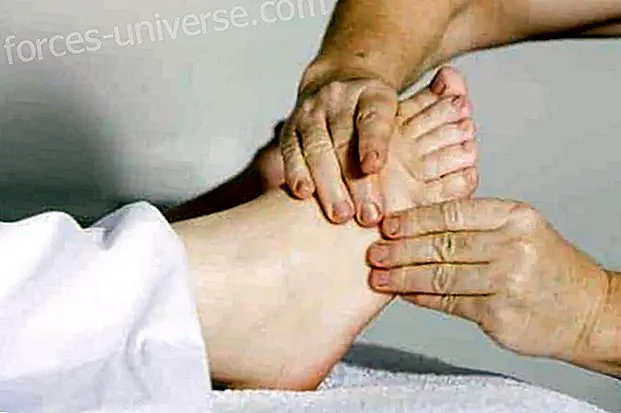Many of us have been taught that we are responsible for the feelings of those we love that we must ensure that they do not feel sad or alone.
Some people retain the basic belief that if our partner feels pain, it is our responsibility or fault, and we must fix it, encourage them, give them a hug, protect them, and the list goes on.
What is the problem of clinging to the basic belief of: his pain = my responsibility?

The main consequence of that basic belief is that it keeps you reactive in your intimate relationships. Every time your partner shares something difficult or painful, you immediately become tense and feel that you need to do something about it.
You stop listening from a comfortable and open position because once you start hearing your partner's pain, you instantly start thinking: “What did I do now? That I have to do? How much effort and energy should I invest to encourage or ask for forgiveness? Over time, that mental effort can lead you to start evading your partner, since you have enough problems of your own.
That automatic reactivity encloses you in a symbiotic relationship, where both are cautious when demonstrating their pain or overwhelm their partner, and one's difficulties are experienced as a great emotional burden for the partner.
Slowly the relationship is transformed into a dangerous place, where you do not want to share your pain so as not to hurt your partner (because your pain = your problem). In these symbiotic relationships, if one is hurt, the other must sympathize with that pain as proof of his love; If one is happy, the other also has to be happy. This dynamic makes the relationship poorly differentiable.
As a result, both stop sharing their truth. They begin to avoid sensitive issues, constructive criticism, frustrations, and tensions of conflict in the relationship in order not to hurt themselves. Such evasion is harmful because it reduces the authenticity, intimacy, and vulnerability of the relationship.
You are not responsible for how your partner feels.
As Lori Gordon writes, you may be a factor in her life that influences her experience, but you cannot take responsibility for her emotional happiness. That does not mean that you are oblivious to their pain . Otherwise, find a way to control yourself while your loved one deals with their personal problems.
Find yourself in the presence of Schnarsh's other definition of intimacy. Feeling and dealing with your pain directly strengthens character, integrity, self-respect, and trust. So do not rob your partner of the opportunity to grow. You don't have to react in a certain way to every expression of emotion on their part. Just let them know themselves.
On one occasion I worked with a symbiotic couple, where it was clear that the husband could not deal with his wife's anger towards him, so he constantly minimized her pain by not listening to her or being sarcastic. In our sessions, we discovered that they both shared the belief of your pain = my fault .
After highlighting his basic belief, he said he was now really ready to hear his partner's pain. I asked him how much he really wanted to hear it from 1 (not really interested) to 10 (dying to hear his laments). He said immediately 8. That number felt too high for the reality of his recurring symbiotic avoidance of pain.
I invited him to take a break, to imagine that he had drunk the truth serum, and share the true number. He scanned his wife's face with concern and whispered, "Well, really, it's 2 out of 10."
To his surprise, his wife was not offended but released a deep and spontaneous laugh. She shared that she felt it was a 2 when he had originally said 8, and she was grateful that he openly admitted what she (and I) perceived.
After that moment, they both experienced a moment of differentiated relationship - he shared his honest pain, in the form of evasion, and she was able to "let him land", because he did not try to censor himself to protect her.
This process helps couples cut the symbiotic umbilical cord between them as they dare to share their pain honestly, without evading or censoring themselves, and even without the need to solve or protect their spouse.
So now let's examine the different steps you can take to soften the symbiotic reactivity of your intimate relationships and allow your partner to share their discomfort openly.
- Reflect to examine whether you hold on to the basic belief that you are responsible for your partner's feelings, or your pain is your responsibility, or that it is your responsibility to make your partner happy all the time . See what you gain and what you lose by trusting too much in such a basic belief.
- If you would like to soften (or change) this basic belief, share this article with your loved one, so they will have a common language and understanding, and set an hour for them to have a deep and calm conversation.
- When they are talking, try to share your pain, criticism, frustration, or even anger towards your partner slowly, in small amounts, pausing to let it be absorbed and digested by your partner.
- Remind your partner to "hold on to himself": He doesn't have to react to what you're sharing. Remind him to just listen and allow it to land on his body. You don't have to apologize, fix it, or motivate yourself.
- If they begin to be reactive, defensive, or aggressive, take a break and / or rest. If necessary, you can always return to this topic later.
- Sometimes sharing the pain in this new and differentiated way, which is not a blow or an attack in the middle of a heated fight, can lead to a certain distance, coldness, or even a break. This is inevitable and natural. Remember to breathe and stay open and loving towards your partner. Remember, and them, that you are doing this to be able to deepen the relationship further. If you can stand firm and not retract or apologize for what you have said, over time your partner may return to this issue with a question or want to share their own pain about it.
This process can lead you to a more conscious relationship, which is less reactive and symbiotic and more authentic and differentiated. Over time, a sense of freedom will rise in the relationship, and you will feel freer to share what you feel.
You will discover a renewed appreciation towards your partner, because they will be willing and strong enough to know you and your pain, without reacting or falling apart. Over time, this process will change the way you think and help you internalize that you cannot prevent your partner from feeling pain.
So if you do not want your partner and those you love to remain undifferentiated, and if you want them to grow, then remember that you are not responsible for their feelings . His pain is his pain, and your pain is your pain.
To close, I offer this phrase: "For everyone their own pain."

Translated by: Diana Mart nez, editor and translator in the big family hermandadblanca.org
Channeled by: Assael Romanelli, clinical social worker and a couples and family therapist.
Original page: https://www.psychologytoday.com/intl/blog/the-other-side-relationships/201908/you-are-not-responsible-your-partners-feelings






